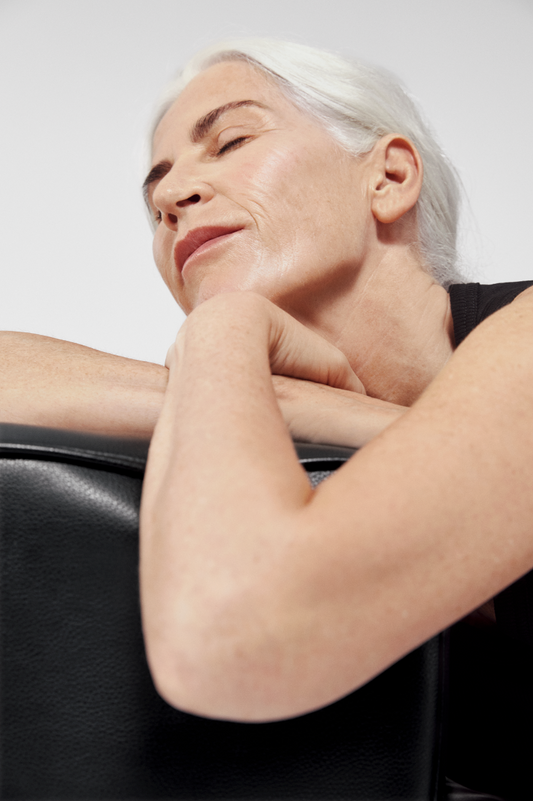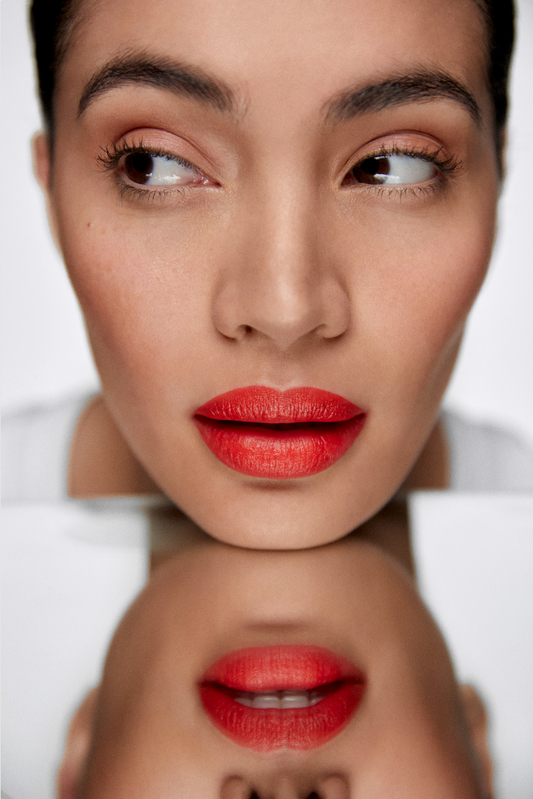| Recently, social media brought to light a 1989 interview in which a presenter asked Audrey Hepburn if she was sixty years old. "You're 60?"He asked on air, accompanied by an accusatory silence. To which the star of Breakfast at Tiffany's replied with her by now well-known irony: "60? Yes, not 16. 6-0". Not satisfied, she added: "And you haven't had any plastic surgery?" More than thirty years later, this video shows that even the Oscar-winning actress for Roman Holiday and UNICEF ambassador was not free from concerns about her beauty or her age. And while the passage of time is inevitable for both men and women, it seems that the latter are allowed to do less. Fortunately, the beauty industry is changing, or at least you are. You've realised that this is not a battle; you're not fighting anything but taking care of yourself. And that, my friend, is called improved ageing. |
 |
And what is improved aging?It is not a new concept, but it has certainly become more prevalent in recent years. Beyond a beauty trend, improved ageing is a lifestyle. A philosophy that embraces, rather than fights, the passage of time, where "ageing well" is nothing more than taking care of yourself physically, mentally and emotionally, a concept that contrasts with the mythical "anti-ageing" that hides behind certain discrimination. It is almost an appeal not to grow old. Contrary to what you may think, improved ageing does not contradict the use of cosmetics, make-up or even aesthetic medicine. It simply offers a new perspective. One that is more about health, self-care and acceptance. In other words, ageing without complexes. |
Improved aging, synonymous with a healthy lifestyleRather than tackling or treating health problems once they have occurred, Improved Aging focuses on prevention through routines and practices that promote overall well-being. Healthy habits are, therefore, at the heart of this holistic philosophy. Slow ageing, one might say, whose recipe is already well known:
|
Ageing well is also about caring for and accepting wrinklesThere is one word that is always associated with skin and ageing, and that word is 'wrinkle'. Those creases or folds that appear on the skin as we age. They are the first signs that "betray" the passage of time. Some cannot be avoided and are a sign of a full life. These are dynamic wrinkles, caused by gestures and changes in facial expression, such as smiling or laughing out loud. Others are static ones, the result of the skin's natural ageing process and the loss of collagen and elastin, which give the skin its firmness.
|
 |
The key principles for improved agingDehydration, skin oxidation, loss of firmness and radiance... These are just some visible signs the skin may be subject to over the years. And now that you know that you don't have to "fight" but rather "look after", you just need to know how. This is where active ingredients and advanced formulas come into play to nourish and beautify the skin: |
|
RETINOIDS Retinol is a derivative of vitamin A and one of the most popular active ingredients thanks to its characteristics with multiple benefits. It stimulates cell renewal and regeneration, smooth and improves elasticity, not only in the skin of the face but also in more specific and delicate areas such as the lips, where there is a greater concentration of expression lines. |
|
MULTIACTIVE ADVANCED LIP SERUM CARMEN Semi-matte red |
MULTIACTIVE ADVANCED LIP SERUM GLORIA Bright pink |
|
One of the most widely used ingredients in cosmetics and make-up. It stands out for its moisturising and antioxidant properties, but above all, for its ability to restore the radiance of the face and achieve that glow effect. |
VITAMIN E
The leading natural antioxidant that protects the skin from the adverse effects of oxidative stress, including photo-ageing. |
|
MULTIACTIVE BRIGHTENING CONCEALER |
MULTIACTIVE SERUM BLUSH |
| Having make-up that has all the benefits of skincare is the best way to respect the health of your skin. |








